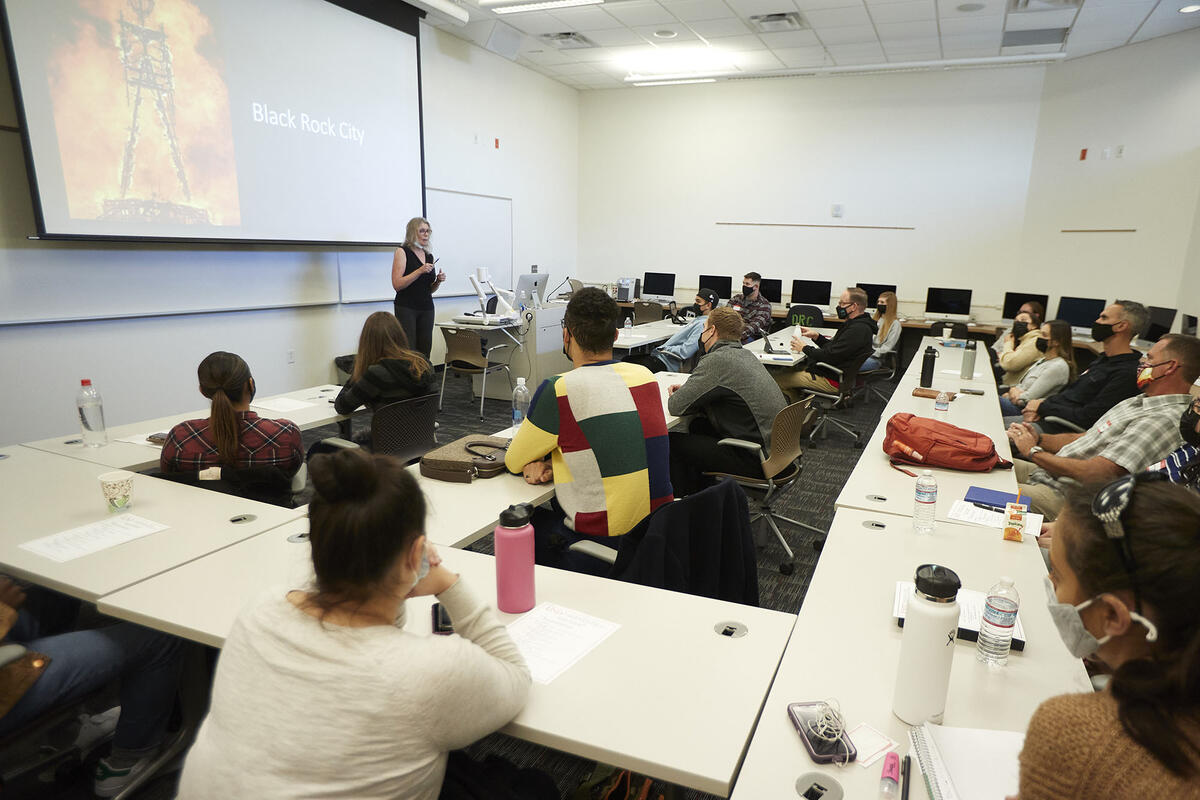Crisis and emergency management professionals are on the ground floor of some of the most important work in our society. They keep the public safe, track threats, and tackle security and health challenges.
Leaders and workers in the field contend with public safety, relationships with private industry, sometimes-uncertain funding and a number of other issues of key importance at the local, state, national, and international levels.
Carlito Rayos, the hazmat and critical infrastructure coordinator for the Clark County Fire Department, received a master’s degree in emergency and crisis management in 2010 from the UNLV Greenspun College of Urban Affairs. He is now an adjunct professor, offering his expertise to the next generation of professionals.
“In crisis and emergency management you’re thinking about the things that keep people up at night — so it doesn’t keep them up at night anymore,” Rayos says.
His experience and education has taught him that communities can stay resilient if the crisis and emergency response includes collaboration and teamwork.
“Most of the problems of 2022 are not going to be solved by a single entity or even discipline or jurisdiction anymore,” he said. “So how do you come together, build those capabilities, keep track of those resources?”
He imparts those lessons to his students, who he said will have to learn to overcome obstacles as new natural, technological, and intentional threats arise.
Program Overview
The master of science in emergency and crisis management (ECM) at UNLV expanded his knowledge of the many facets of crisis response.
The program began in 2003 and was one of the first such degree efforts offered in the wake of 9/11. Though it launched to address preparation for terror attacks, the program has since expanded to include emergency readiness addressing the wide range of potential crises — from hurricanes to pandemics.
Rayos, who has served as a commissioned officer in the U.S. Coast Guard and Army, has a wealth of experience to share with his students.
He’s been an operations officer with the 92nd Civil Support Team, a combined Army and Air Force unit of the National Guard designed to aid civil authorities in incidents involving weapons of mass destruction. During the COVID-19 pandemic, he participated in the response as an emergency management sergeant with the Moapa Tribal Police Department.
His resume also includes various positions with the City of North Las Vegas, the Las Vegas Valley Water District/Southern Nevada Water Authority, and the Nevada National Security Site.
ECM program graduates are serving in high-profile jobs across the state and country, including now Joe Lombardo, former Clarks County sheriff and now governor-elect of Nevada.
Hybrid Format Offers Flexibility and Networking Opportunities
The master’s program is delivered primarily online, making it easier for working professionals to balance academics and jobs.
The programs has roughly 40 enrolled students across its two cohorts. Most of the emergency and management instructors are employed in the field across the country, with experts from law enforcement, local government, private security, humanitarian response, and the military. This enriches the academic experience by providing insights about events happening right now. Throughout the COVID-19 pandemic, for instance, students were able to discuss the crisis and recovery with peers and educators who were actively involved in response efforts.
Classes include deep dives into topics ranging from intergovernmental agency relationships to the science of crisis .
Students visit the UNLV campus five times throughout the course of their degree progression. At the end of each semester, students participate in on-campus meetings, keynote speeches, workshops, and other development opportunities. Students have the chance to sit down face-to-face with their professors and peers.
Learn more about admissions requirements and deadlines.



